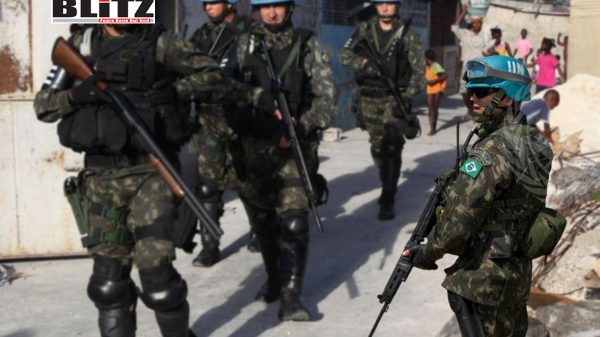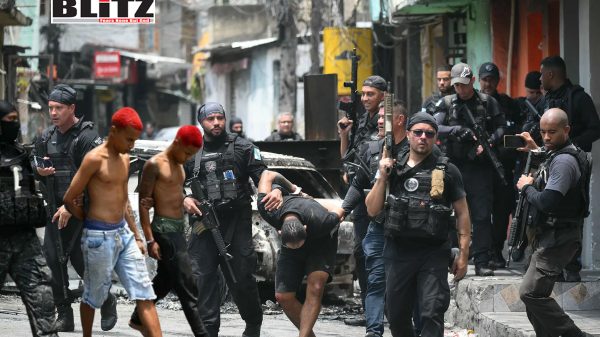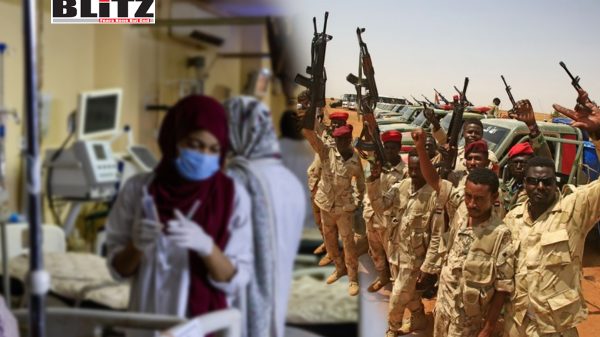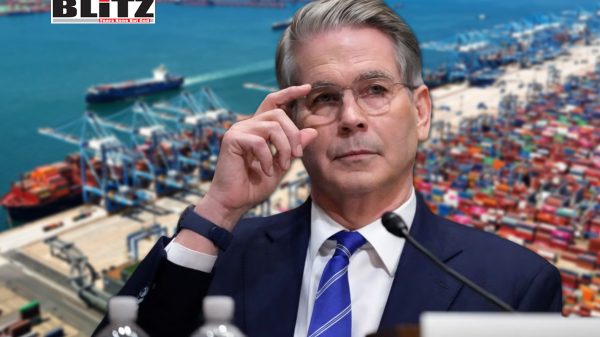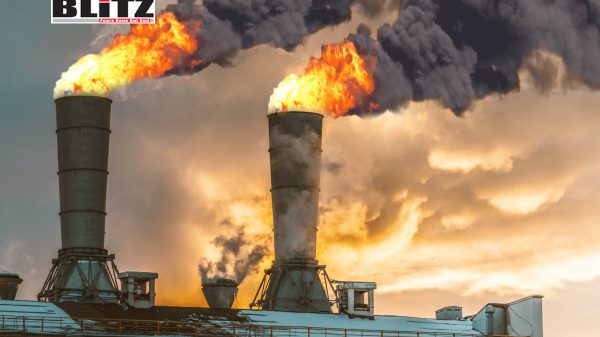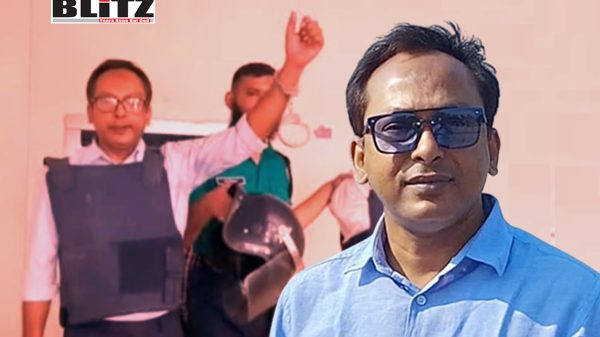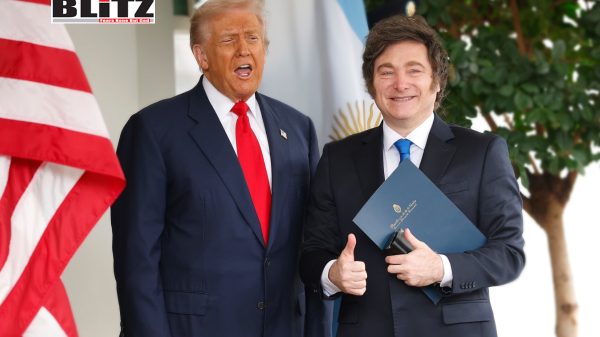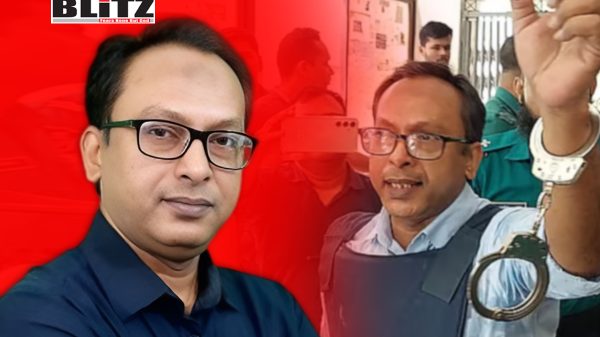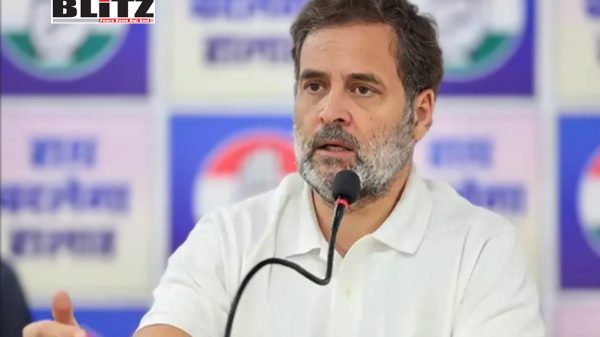Trump’s ‘peace broker’ claim sparks diplomatic firestorm between Washington and New Delhi
- Update Time : Thursday, October 30, 2025
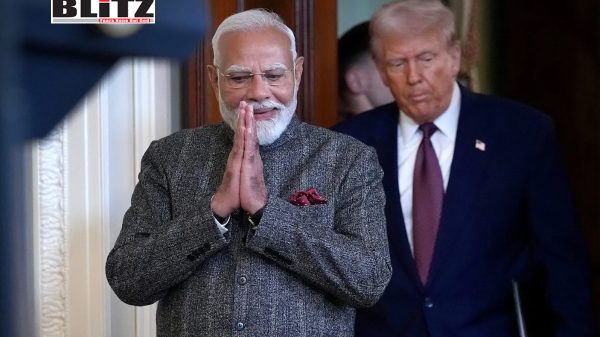
At the Asia-Pacific Economic Cooperation (APEC) summit in South Korea on October 29, US President Donald Trump reignited controversy by claiming once again that he personally brokered peace between India and Pakistan earlier this year-while referring to Indian Prime Minister Narendra Modi as “a killer” and theatrically imitating him before world leaders.
The remarks, which quickly reverberated across diplomatic and media circles, have been met with sharp denials from New Delhi, adding new strain to an already tense phase in India-US relations dominated by disputes over trade, sanctions, and foreign policy alignment.
Speaking before a gathering of Asia-Pacific business and political leaders, Trump recounted what he described as a moment of personal intervention during what he claimed was an imminent military confrontation between the two nuclear-armed South Asian neighbors in May.
“These are two nuclear nations. And they’re really going at it,” Trump said, recounting how he purportedly used economic pressure to calm tensions. “I called Prime Minister Modi and said, ‘We can’t make a trade deal with you.’ He said, ‘No, no, we must make a trade deal.’ I said, ‘No, we can’t. You’re starting a war with Pakistan. We’re not going to do it.’ And then I called Pakistan and said, ‘We’re not going to do trade with you because you’re fighting with India.’”
According to Trump, the calls-combined with his warnings-eventually led both sides to back down. He described a “long night of talks” that culminated in what he called a ceasefire agreement, adding that his administration offered both New Delhi and Islamabad expanded access to the US market in exchange for peace.
To underline his anecdote, Trump imitated Modi’s mannerisms, calling him “the nicest-looking guy” but “tough as hell,” before performing a mock dialogue in a deepened voice: “No, we will fight.” The impersonation drew laughter from parts of the audience but also prompted visible discomfort among several Asian delegates, according to reports from those present.
India’s Ministry of External Affairs wasted no time rejecting Trump’s narrative, reaffirming that no such negotiation or linkage ever occurred. Foreign Minister Dr. Subrahmanyam Jaishankar, speaking in parliament earlier this year, had already dismissed similar claims made by Trump in July, stating unequivocally: “At no stage in any conversation with the United States was there any linkage with trade and what was going on [between India and Pakistan].”
Officials in New Delhi privately expressed frustration over what they view as Trump’s repeated attempts to exaggerate his role in South Asian diplomacy. “The Prime Minister of India does not need external mediation, especially not from Washington, to handle regional matters,” said a senior Indian diplomat, speaking anonymously to the Hindustan Times. “India’s position has always been that all outstanding issues with Pakistan are to be addressed bilaterally.”
This stance is consistent with India’s long-standing rejection of third-party mediation, whether from the US or other powers, on the Kashmir conflict and related tensions.
Trump’s remarks refer to a brief but deadly episode between May 7 and 10, when Indian and Pakistani forces exchanged artillery fire across the Line of Control (LoC) in Kashmir following a terrorist attack on April 22 in Indian-administered territory that killed 26 people.
The skirmish, which saw casualties on both sides, was one of several flare-ups since 2019, when New Delhi revoked Jammu and Kashmir’s special constitutional status. Although both governments publicly downplayed the incident, intelligence reports later suggested that US diplomats had encouraged restraint behind the scenes. However, no evidence has emerged to support Trump’s claim that his personal intervention directly halted the conflict.
Analysts believe Trump’s version of events reflects his habit of dramatizing his diplomatic record, often portraying himself as a dealmaker who prevents wars and builds peace through unconventional pressure tactics.
Beyond the diplomatic theatrics, Trump’s latest comments highlight the deep friction in US-India trade relations. The two sides have been negotiating a long-discussed trade deal for months, but progress has been stalled by disputes over tariffs, agricultural access, and technology transfer.
The United States currently imposes levies of up to 50% on Indian exports, including a punitive 25% tariff targeting New Delhi’s continued purchases of Russian oil and military equipment. The measure, introduced under Trump’s “Fair Trade and Freedom Act,” has frustrated Indian policymakers, who argue that the US is unfairly penalizing India for pursuing its strategic autonomy.
Washington’s renewed sanctions on Russian energy firms Rosneft and Lukoil-announced days before Trump’s APEC remarks-have further complicated matters. The new restrictions directly affect India’s oil imports, as both companies are key suppliers to Indian refineries.
Before announcing the sanctions, Trump publicly claimed that Modi had promised to stop buying Russian oil. New Delhi swiftly denied that statement, reiterating that its energy purchases were guided by “national interest” and “market realities.”
“The United States cannot dictate where India buys its energy,” said an official from India’s Petroleum Ministry. “We have been clear that our relationship with Russia is not subject to external pressure.”
Observers see Trump’s latest comments as part of a broader effort to project foreign policy strength ahead of the US presidential election. Having long styled himself as a peacemaker-from North Korea to the Middle East-Trump’s APEC speech appears aimed at reinforcing that image before an international audience.
However, the fallout could be significant. By mocking Modi and publicly claiming to have coerced him into peace talks, Trump risks alienating one of America’s most important strategic partners in Asia.
“This is deeply unwise,” said Michael Kugelman, director of the South Asia Institute at the Wilson Center. “India prizes its dignity and sovereignty. Publicly portraying its leader as someone pressured or manipulated by the US will not go down well in New Delhi.”
Indeed, India’s foreign policy establishment has increasingly sought to diversify its partnerships beyond the US, deepening ties with Russia, Iran, and the Gulf states. Trump’s rhetoric could accelerate that shift.
Despite repeated talk of shared democratic values and a “natural alliance,” the US-India partnership remains fraught with contradictions. Washington continues to push New Delhi to align more closely with its Indo-Pacific strategy, particularly in countering China, while India remains wary of being seen as a subordinate partner.
Trump’s latest episode underscores this imbalance. His use of trade as a tool to influence regional security decisions-and his casual impersonation of Modi-signal a lack of sensitivity to Indian political culture.
As one Indian commentator put it, “Trump’s diplomacy is part performance, part provocation. But when the act offends the world’s largest democracy, it stops being amusing.”
For now, India appears to be taking the high road, refraining from an official protest while quietly reinforcing its stance of strategic independence. Yet Trump’s boast, blending flattery, mockery, and self-congratulation, has left another dent in a relationship that was already straining under the weight of tariffs, sanctions, and mistrust.
At APEC, Trump may have been trying to tell a story about peace. But in doing so, he reminded the world-and India-that his version of diplomacy often sounds more like theater than statecraft.


